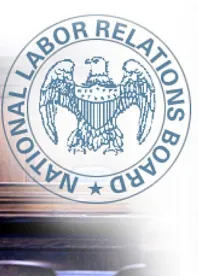On May 21, 2014, NLRB Associate General Counsel Purcell issued a memorandum to all NLRB field staff announcing the implementation of a joint OSHA-NLRB referral agreement to redirect Charging Parties whose claims are time-barred before OSHA to the NLRB.
Section 11 (c) of the Occupational Safety and Health Act requires that complaints be filed with OSHA within thirty (30) days. By OSHA’s estimate, between 300 and 600 complaints are screened out or dismissed each year because the complaining employee fails to file a charge within 30 days. Beginning in March 2014, the OSHA Office of Whistleblower Protection Programs instructed OSHA staff to advise complainants who miss the filing deadline of their right to file a Charge with the NLRB within the six-month statute of limitations under the National Labor Relations Act.
OSHA’s policy is to advise complainants with untimely charges of the right to file charges with the NLRB, that the statute of limitations for doing so is six months, and that OSHA “recommends that the complainant contact the NLRB as soon as possible to discuss his or her rights.” OSHA personnel are also to provide the complainant contact information for the nearest NLRB Field Office, the NLRB website, and the NLRB’s toll-free number.
NLRB AGC Purcell issued a memorandum to all NLRB field staff on May 21, 2014 announcing the OSHA referral policy, directing staff to be alert for such referrals, and to record the number of OSHA-referred charging parties. The agreement between OSHA and NLRB builds on the cooperation between the two agencies pursuant to a Memorandum of Understanding signed in 1975 for handling workers’ safety retaliation complaints which might be filed with either or both agencies. In that MOU, it was agreed that enforcement actions should primarily be taken under the OSHA Act, rather than the National Labor Relations Act. The new agreement reflects the continuing expansion of the NLRB’s emphasis on protected concerted activity claims, regardless of whether charging parties were involved in any union-related activities.




 />i
/>i

